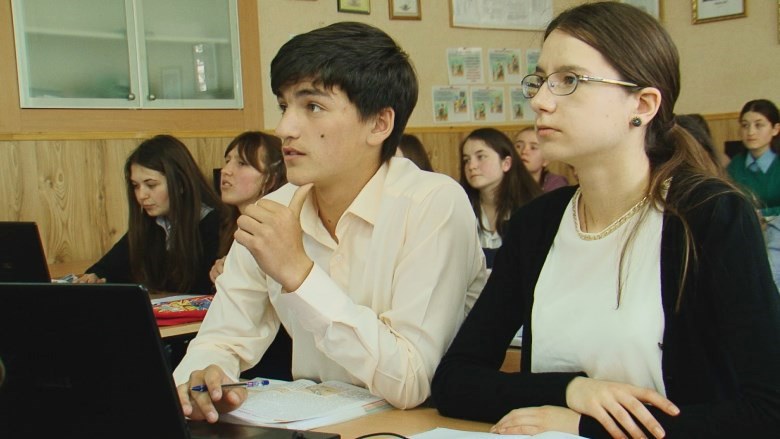When we entered the room, it was filled with the delicious aroma of freshly-baked plăcintă, a traditional Moldovan pastry. Plus, tea was brewing! Indeed a perfect setting to welcome guests, but also just another regular gathering of the School Board of Mihai Eminescu Lyceum in the town of Hîncești, in central Moldova.
The 13-member School Board comprises teachers, students, parents and representatives of local authorities and private businesses. Everyone has a voice in deciding how to spend the school’s MDL 6.4 million budget (nearly US$340,000) per academic year. And they make sure that the allocated money is spent in the best interests of the school’s 703 students.
This arrangement is not unique in Moldova. For the past three years, the Ministry of Education has been promoting social accountability instruments across the country’s educational establishments, with the support of the World Bank. As part of these education system reforms, schools have received greater autonomy and are now empowered to engage more with local communities in managing their financial and human resources.
Ana Vivdici, Director of the lyceum, beams with pride as she speaks of her job.
“The benefits we gained with financial autonomy are many – it’s all about being better at governing our school at a local level. We received a chance to make decisions on the teaching system we run here; we received a chance to develop, to invest, and to determine our priorities on our own: we do what we need the way we like. It also comes with being fully responsible for the money we spend, the life of our school in the eyes of our community and in the best interests of our students,” Vivdici says.
The lyceum’s story is part of the school-based management reforms introduced across Moldova with the help of the World Bank. Moldova was one of the first countries to join the Global Partnership for Social Accountability, a World Bank-administered initiative that promotes citizen engagement in the activities of public institutions.
Changing approaches was not easy at first, however, as school directors and teachers needed to learn how to run a budget and how to efficiently procure goods and services. But, as former Education Minister Maia Sandu argues, the effort was well worth it.
“When we first raised the issue of quality of education, everybody would come back to us and say ‘yes, but we need proper financing’. And we agreed: schools have to be well-financed. But what does it mean, how much and where do we get the money? The first thing we should do is to look into the funding that is already allocated. And see whether this money is used properly and in a transparent manner,” Sandu says.
Central to the success of the reforms was the understanding that schools are institutions that know best what it is they need and how to finance their activities.
“The first thing we did was to implement the financing autonomy of schools. And in the last three years, we have seen lots of projects being implemented by schools with almost the same money, which proves that the money is now being spent more efficiently,” Sandu adds.
Social accountability works as a multilateral coalition, where both parents and students are key.


